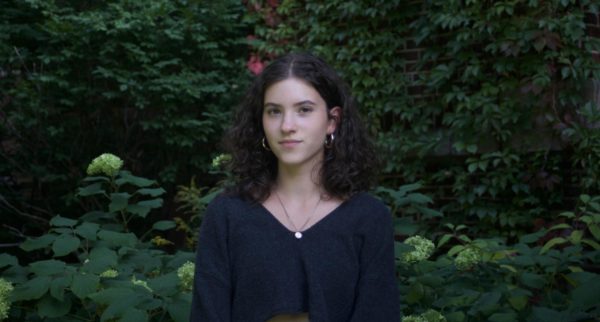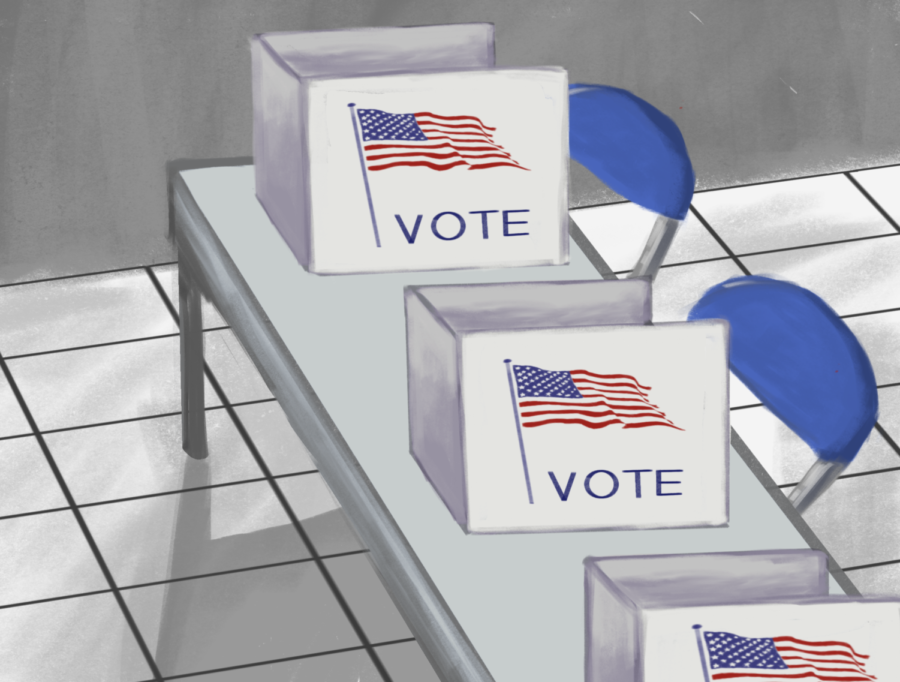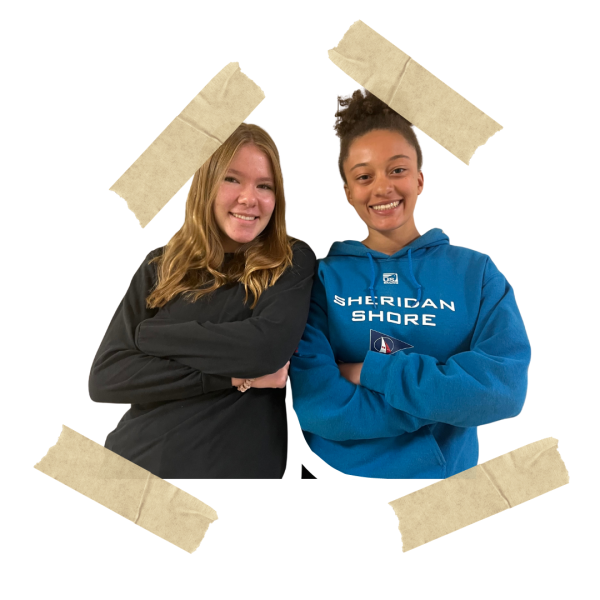Opinion | Eligible students need to utilize their right to vote
In late 2020, a historic presidential election took place. Many people who’ve never voted in their lives cast a ballot with the hope their candidate of choice would prevail. In fact, half of Americans ages 18-29 cast a ballot in the 2020 presidential election, one of the highest youth voting rates in recent history and a huge increase from 2016 (from 39 percent to 50 percent). Elections such as this one inspired a sense of urgency in youth nationwide, due to the candidates, social injustices, community issues and the list could go on. However, as young citizens, a majority of high school students still feel as if their voice isn’t heard or doesn’t matter.
High school students often feel as if they don’t have to worry about the injustices that occur in their own cities because those incidents may not affect them directly. However, students who decide not to vote are being inconsiderate towards others. These voting-age students decide to not use their vote because they sit on a throne of privilege. No longer can the younger generations go on without an awareness of their collective power in this country.
“When you vote, you’re not just completing your own civic duty, but you are going to be asked why you voted, what you did to vote, who you voted for and why,” Chauncy Wadsworth, a senior and one of the leaders of ETHS’ Politics Club explains. “As a result, you get an opportunity to spread your opinion and affect other people.”
In a city like Evanston and a school like ETHS, we hold pride in our awareness. We have great opportunities that provide platforms for youth and even have multiple clubs dedicated to educating students on political issues in our community, our country and around the world. ETHS’ Politics Club’s main goal is to provide a space where students of different political views and backgrounds can discuss current events, learn new ways to expand on their views and to simply educate future generations.
However, senior Serena Brown, a member of the Civic Engagement Committee of the Community Service Club, expressed her concerns about voter involvement in local elections.
“Within the state, I feel the biggest problem is just that people aren’t educated enough…whereas presidential elections [where] we see so much [education of younger voters].”
This is incredibly true. The 2020 presidential election was broadcast so widely through official news stations and social media that, as aforementioned, the number of youth voters increased greatly. However, this is not often the case in citywide and even statewide elections, as evidence during this past February’s local elections in which current mayor Daniel Biss won election
“People were like, ‘Oh, there’s an election?’” Brown reflects. “It’s like, ‘Oh, I don’t really care who wins,’ [when people] don’t know anything about anyone.”
This is a mindset that could prove detrimental to Evanston’s political climate. If young people, whose voices and opinions will shape the future of our world, are actively choosing to ignore the privilege they possess in our democracy, positive change will be further delayed.
Some teens may choose not to vote because they find it too complicated or time consuming. These are, in fact, misconceptions. According to the City of Evanston official website, “If you have an Illinois driver’s license or state ID, you may register online through the Illinois State Board of Elections website.” Voter registration is a relatively painless process that can be completed online at any time. As long as the voter has been a resident of the area for at least 30 days, is 18 years old and a US citizen, they can register.
In 2022, the gubernatorial primary and general elections will be taking place in Cook County. The election dates are as follows: June 28 and Nov. 8. While that may seem like a long ways away, it’s never too early to start the process of educating yourself on candidates and their political agendas. Governors are in charge of approving state budgets and appropriations and enacting state legislature, as well as many other aspects regarding Illinois’ judicial system. Boring as it may sound, many decisions that governors make are extremely essential to public health and safety, especially during a global pandemic.
An example of this is current Illinois governor J.B. Pritzker’s statewide climate action plan. Governors have the power to put impactful policies into place, but the only way these policies will ever see light is if young voters use their voices to speak out about what they feel is important within their own community.
“This is one of the most politically active generations, I’m pretty sure in the history of this country,” says Wadsworth “Even then, the participation that we have in our generation, when it comes to elections is still very, very small.”
It’s no secret that ETHS’ current generation of high school students, Generation Z, is one of the most vocal and progressive generations ever. Protests are organized, petitions are signed and walkouts are held. But without the voter contribution this country, this state, and this city is in need of, change will remain far from us.
During election cycles that aren’t high profile, youth voters have the ability to tip the scales with their votes. In the 2021 Virginia gubernatorial election, only 25 percent of potential youth voters cast their vote. Republican candidate Glenn Youngkin ended up winning the race, mostly due to this unfortunate failure of young people—many who voted for Biden and were engaged in 2020—to go out and use their voices.
Every vote will always matter, and that is exactly what students must realize. No matter how many times it must be repeated and how repetitive it may get, you must vote whenever you encounter the opportunity to do so. Your participation, along with the participation of your friends and classmates, leads to something even greater: a more just society. Especially in low-turnout elections, one vote could make a difference in the outcome of an election. If everyone tries to get out and vote, it will lead to a better future.
Your donation will support the student journalists of the Evanstonian. We are planning a big trip to the Journalism Educators Association conference in Philadelphia in November 2023, and any support will go towards making that trip a reality. Contributions will appear as a charge from SNOSite. Donations are NOT tax-deductible.













